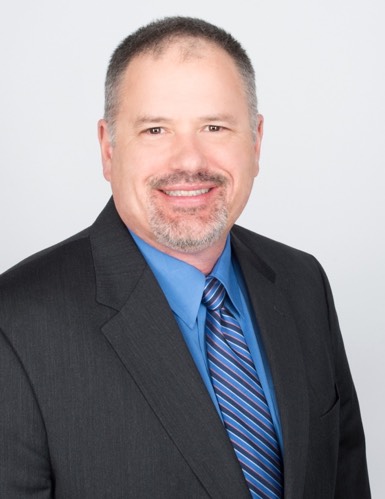Mission, Vision, Goals
Hello from Perry, Executive Director of Transportation Services
 I am a proud Aggie and it’s my privilege to be a part of this internationally prestigious research campus. Our team is working to introduce new parking technologies that make daily commuting choices easier, lessen parking congestion, and improve upon long-term sustainable parking options.
I am a proud Aggie and it’s my privilege to be a part of this internationally prestigious research campus. Our team is working to introduce new parking technologies that make daily commuting choices easier, lessen parking congestion, and improve upon long-term sustainable parking options.
Customer service remains fundamental to our service offerings, and Transportation Services will engage with our community to offer more transparency into our operations, by showing how parking fees improve infrastructures and support sustainable transportation. I look forward to what’s ahead and having a hand in moving Aggies forward!
Our Mission
As a leader in our industry, Transportation Services’ mission is to build, maintain, and operate transportation systems on the UC Davis campus, and facilitate transportation within those systems using the most fiscally and ecologically sustainable methods practicable. By selling permits and enforcing parking policy, we can maintain roads, pathways and parking lots--all in an effort to support the sustainability goals of UC Davis and move Aggies forward.
Our Vision
Transportation Services envisions a campus with no more than 25% drive-alone commuters, a bike theft rate 50% below that of 2020, and a continued refrain from building a 4th parking structure on the campus. We will continue to work efficiently and sustainably to meet our goals.
Learn about Transportation Tomorrow
Our Goals
By 2025, we will take the following incremental steps toward the vision within our mission:
- Modernize Parking Payments | By July 2021, implement a parking system that allows campus affiliates and visitors to pay for hourly, daily and longer-term permits via their mobile device.
- Increase Parking Compliance Efficiency | Transportation Services will be able to enforce parking at every campus parking stall at least twice per day.
- Work Within Our Means | Maintain a balanced budget and begin working toward a 6-month operational reserve.
- Grow Sustainable Commuting | Build a comprehensive sustainable commuting program for those with flexible work schedules and who wish to go multi-modal.
Transportation Services is moving toward a more sustainable future

The UC Sustainable Practices Policy declares that all campuses should decrease greenhouse gas emissions by reducing drive-alone commute trips by ten percent from 2015 levels by 2025. UC Davis takes this responsibility seriously and Transportation Services commits to doing our part in meeting or exceeding the UC Office of the President directive.
If UC Davis were to take no steps to decrease driving, but instead build enough parking to meet future demand, the overall costs would exceed $300 million. That cost would be passed on to the campus community, doubling or tripling the cost of a parking permit. Taking the long-view now is the time for Transportation Services to bolster our support for the health of our community and our environment. In order to do that, we must bolster the use of sustainable transportation modes and take a dynamic look at how we can best adapt our services to meet transportation demand and changing work-commute patterns.
Transportation Tomorrow is the framework to accomplish our goals and create that future. Click here to jump to the 10 recommendations to achieve the Transportation Tomorrow vision.
Authority
The following excerpts come from documents by the UC Regents as well as the State of California, that guide Transportation Services’ parking and enforcement operations. These are the reasons Transportation Services has to charge a fee to those who park on the UC Davis campus. Please see notable excerpts below.
From UC Davis Traffic and Parking Code
Chapter 2: Authority
Section 2.01. Authority to Create Traffic and Parking Regulations. The Chancellor, on behalf of The Regents of the University of California, is authorized pursuant to Sections 21113, 21200 and 39002 of the California Vehicle Code to set forth conditions and regulations pertaining to the operation and parking of vehicles and bicycles upon the grounds of the University.
Section 2.02. Application of Regulations. The provisions of this code may be enforced by all duly sworn officers of the Police Department, Parking Enforcement Officers (as appropriate) or such persons as are assigned by the Chief of Police, Vice Chancellor-Administration or the Director of Hospital and Clinics, UCDMC.
Excerpt from 2000 memo, outlining UCOP Budget including language on Auxiliary Enterprises
Auxiliary Enterprises, Program Objectives Statement
Auxiliary enterprises are those non-instructional services provided to individuals, primarily students, in return for specific user chargers. The organizational units providing these services, such as student housing, parking, intercollegiate athletics, food services, parking operations, and various other, are self-supporting and are not subsidized by the State.
Excerpt from an April 2002 letter, University of California, Transportation Systems and Parking Program Principals
PARKING IS A FEE-BASED TRANSPORTATION SYSTEM SERVICE
1) Within the context of the University’s transportation system, each campus provides limited parking facilities for its faculty, students, staff, and visitors. In conformity with the University’s implementation for the 1960 Master Plan for Higher Education in California, parking is offered as a fee-based service, and operated as an auxiliary, self-supporting enterprise.
2) Parking facilities are a fundamental part of the transportation system. The University recognizes that automobile access to each campus is a transportation alternative for faculty, students, staff, and visitors. Parking facilities are elements of the campus infrastructure and Long Range Development Plan, and, like utilities, are protected and maintained to ensure vehicular access to the campus as appropriate.
PLANNING
3) Transportation systems are a critical component of each campus's Long Range Development Plan which provides for various forms of campus access. These systems must be consistent with and support Long Range Development Plans.
RATE STRUCTURES
4) Each campus established and implements a parking facility use rate (fee) structure that supports the campus transportation system.
5) Parking fees are consistent with these principles and information regarding the campus transportation system programs supported by parking fees is publicly available.
6) Parking fees may differentiate according to differing types of access, proximity to various buildings and locations, use patterns, etc. Parking fees for the same access shall not differentiate according to groups of individuals (i.e. faculty, students, or
staff).7) Parking fees shall not support non-transportation system related expenses.
CAPITAL COSTS
...
9) The cost of capital and operating expenses related to the parking system shall be recovered from the users of the parking system. …
